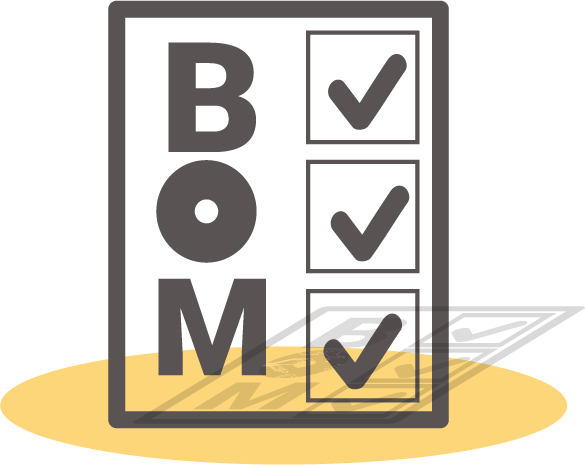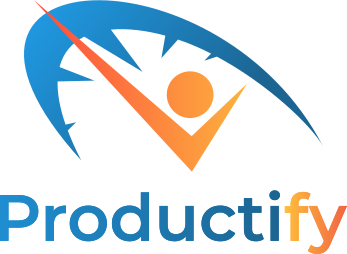Unlocking Efficiency and Growth with ERP for the Manufacturing Industry
By Mukesh Variyani April 17, 2024 Business
In today’s competitive landscape, the ERP for Manufacturing industry is playing a crucial role in driving accuracy and operational excellence. Managing supply chains, inventory, production planning, and quality control has become more efficient with advanced technology. One such transformative solution is manufacturing ERP software.
Manufacturing ERP systems serve as a centralized platform for managing core business operations with greater precision and visibility. This blog explores how ERP solutions are reshaping manufacturing processes, the key benefits they offer, and essential features that define the Best ERP for manufacturing.
What is ERP?

Enterprise Resource Planning (ERP) refers to software systems designed to integrate and manage various core business processes. Manufacturing, supply chain management, finance, HR, inventory, and CRM are among the many operations streamlined by ERP for Manufacturing industry solutions. These platforms boost business agility, ensure real-time data access, and promote sustainable growth.
Understanding ERP for Manufacturing
Enterprise Resource Planning (ERP) software enables manufacturers to manage business-critical functions using integrated tools and real-time data. The Best ERP for manufacturing includes modules tailored for production planning, quality assurance, procurement, inventory control, supply chain coordination, and financial management making it indispensable for modern manufacturing enterprises.
Benefits of ERP for Manufacturing Industry
Enhanced Efficiency
A robust manufacturing ERP automates repetitive tasks, reduces manual paperwork, and eliminates inefficiencies. These improvements lead to faster decision-making, streamlined workflows, and higher productivity across departments.
Improved Visibility
With ERP for Manufacturing industry, businesses gain real-time insights into inventory levels, production timelines, and order statuses. This increased transparency allows for better planning, resource allocation, and responsiveness to market changes.
Optimized Inventory Management
The Best ERP for manufacturing offers real-time inventory tracking and automation for raw materials, work-in-progress, and finished goods. This minimizes stock discrepancies, reduces holding costs, and ensures timely procurement.
Improved Quality Control
Manufacturing ERP software ensures that each product meets set quality standards. By monitoring quality metrics and automating checks, ERP helps identify issues early and enforce corrective actions proactively.
Simplified Supply Chain Management
ERP for Manufacturing industry improves collaboration with suppliers and distributors. It enhances procurement, tracks vendor performance, and adapts quickly to supply chain disruptions, making operations more resilient.
Cost Savings
By eliminating waste, optimizing processes, and enhancing resource utilization, a well-implemented manufacturing ERP helps reduce operational costs and improve profitability over time.
Key Features of ERP for Manufacturing

Bill of Materials (BOM) Management
Facilitates creation and management of detailed part lists required in the ERP for Manufacturing industry to assemble finished goods efficiently.
Production Planning and Scheduling
Enables manufacturers to strategically plan production, allocate resources, and schedule tasks effectively using a robust manufacturing ERP.
Material Requirement Planning (MRP)
Supports accurate demand forecasting, smart purchasing, and timely availability of materials a core capability of the Best ERP for manufacturing operations.

Shop Floor Control
Provides real-time control and monitoring of shop floor activities including resource allocation and work order progress, central to any effective ERP for Manufacturing industry.
Quality Management
Ensures product quality through rigorous tracking and control processes, an integral component of any trusted manufacturing ERP system.
Supply Chain Integration
Promotes seamless collaboration across the supply chain from suppliers to distributors enhancing the operational flow in the ERP for Manufacturing industry.
Inventory Optimization
Offers real-time inventory insights, enabling the Best ERP for manufacturing to minimize excess stock and avoid material shortages efficiently.
Financial Management
Streamlines financial tasks like budgeting, accounting, and reporting through integrated modules a key strength of any comprehensive manufacturing ERP.
Manufacturing ERP Implementation Strategies
Successfully implementing a manufacturing ERP requires strategic planning and coordination. Below are essential strategies for deploying the Best ERP for manufacturing organizations.
Pick the Correct ERP Solution
Choose a manufacturing ERP that aligns with industry-specific needs, offering scalability, customization, and proven domain expertise.
Involve Customers
Engage cross-functional teams from production, IT, finance, and procurement to ensure successful adoption of the ERP for Manufacturing industry.
Provide Training and Support
Provide thorough training and ongoing support to employees to ensure smooth operation and adoption of the manufacturing ERP solution.
Phased Implementation
Begin ERP implementation in phases, focusing first on high-impact modules like production and inventory to streamline deployment of the Best ERP for manufacturing environments.
Data Migration and Integration
Coordinate a seamless transition of data from legacy systems and ensure integration with platforms like MES or CRM for a fully functional manufacturing ERP.
Track and Assess Performance
Monitor ERP system performance closely to track improvements in productivity, inventory accuracy, and customer satisfaction key metrics for evaluating ERP for Manufacturing industry success.
Conclusion
In conclusion, ERP for Manufacturing industry plays a vital role in streamlining operations, boosting efficiency, and enhancing control over critical manufacturing functions. By implementing the Best ERP for manufacturing with a thoughtful strategy, organizations can reduce operational costs, improve productivity, and stay competitive in today’s dynamic market landscape.

Mukesh Variyani
MD, Finbyz Tech Pvt Ltd
